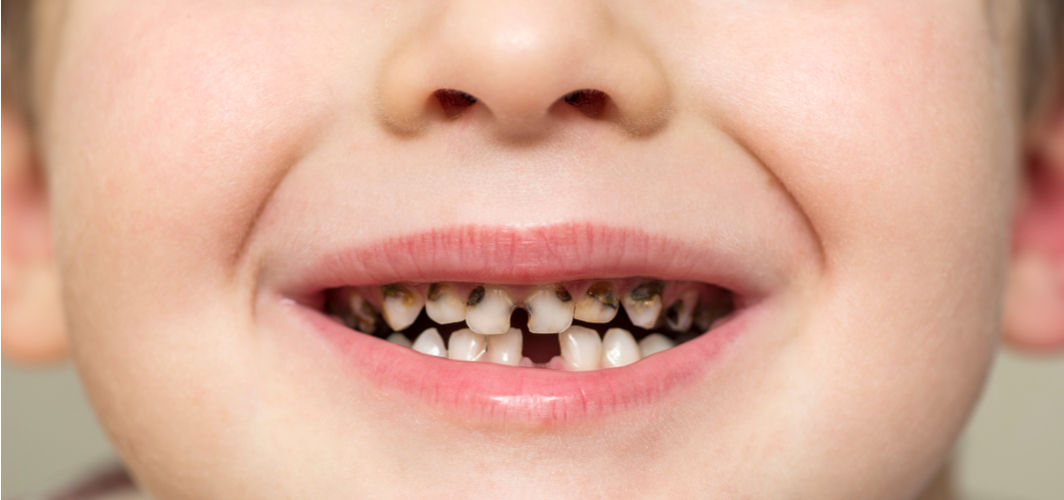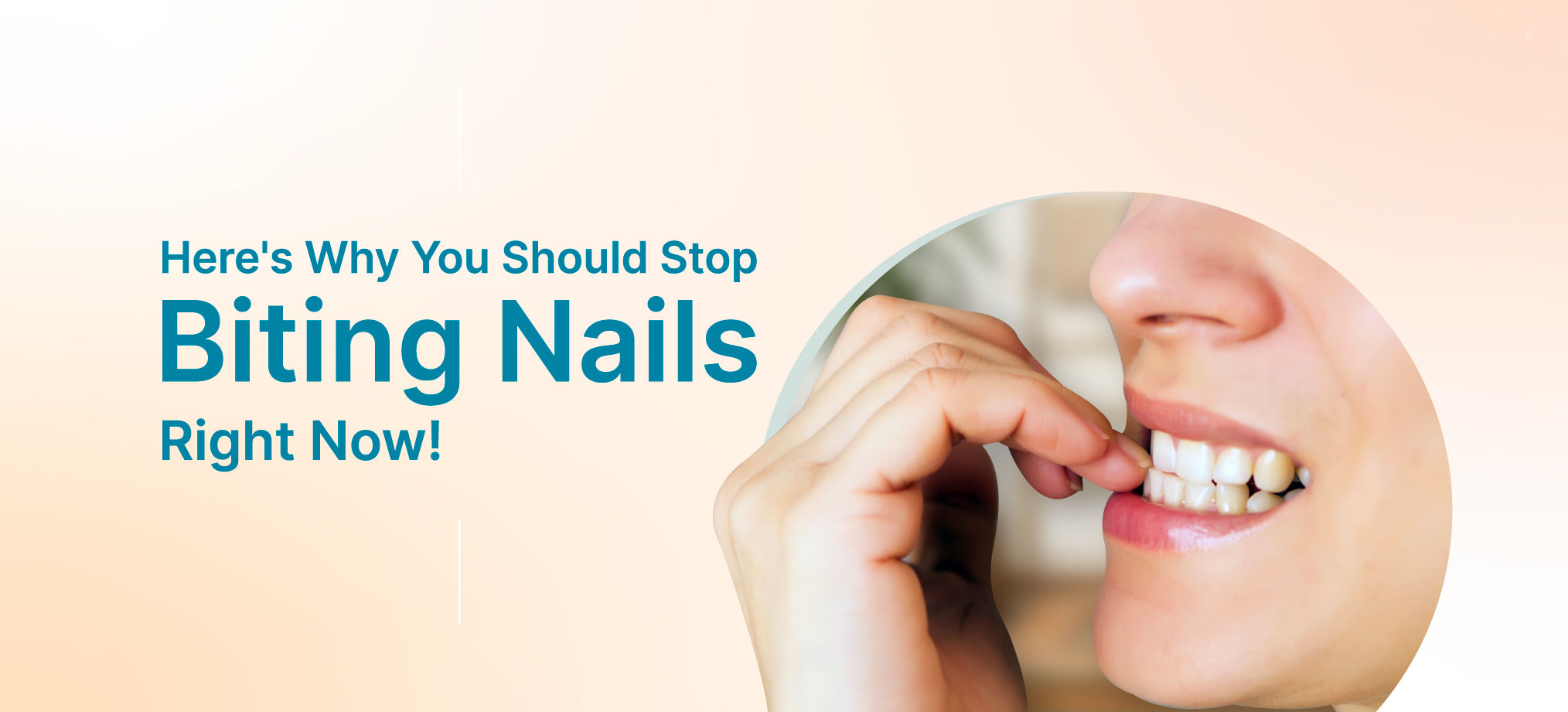Oral & Dental
7 Signs You Should Visit a Dentist
4 min read
By Dr Sonia Bhatt, Dental Surgeon - 29 December 2021, Updated on - 21 March 2023
Share this article
0
6 likes

We often refrain from going to a dentist until extremely necessary. However, it is a proven fact that regular dental visits are necessary to maintain healthy gums and teeth. Furthermore, several studies have linked poor dental health to several chronic health problems such as diabetes, heart disease, and kidney disease. Let us address some of the dental health problems that require an expert evaluation.
1. Bleeding gums
Bleeding gums are a classic sign of bacterial gum infection, which is medically called gingivitis. If left untreated, the infection can aggravate and damage the surrounding tissue and underlying bone (leading to periodontitis), ultimately resulting in loss of teeth. Nevertheless, gingivitis is reversible and can be treated with the help of dental scaling. Dental scaling involves the use of an ultrasonic machine with blunt metal tips and water irrigation.
2. Dirty teeth
Due to the yellow hue of dentin (the second layer of the teeth), the natural colour of teeth appears to be yellowish-white. However, this colour darkens on consuming some foods and beverages such as curries with turmeric, tea, and coffee. Furthermore, chain-smoking and improper oral hygiene can result in staining of the teeth, and promote the development of plaque and calculus (hardened plaque). While the stains, plaque and calculus can be removed by scaling, whitening of teeth can be done with the help of a dental procedure called bleaching. Dental bleaching involves the use of peroxide-containing materials to lighten the shade of teeth.
3. Foul odour from mouth
Bad breath, medically called halitosis, is a common problem seen in people suffering from gingivitis, periodontitis, dry mouth (xerostomia), and mouth breathing. While gum infections can be treated with help of scaling, people with dry mouths are prescribed artificial saliva and lozenges to keep the mouth moist. Those with a habit of mouth breathing are given a removable oral shield, which covers the mouth and allows the person to breathe through the nose.
4. Sensitivity or pain in the teeth
Dentin contains several nerve endings, which are protected by the outer surface of teeth, called enamel. However, sometimes, the dentin gets exposed due to vigorous brushing, the influx of acid in the mouth (GERD), or any trauma to the enamel, resulting in hypersensitivity. Exposed dentin can be sensitive to hot and cold food, beverages, and even air. This can be treated easily with the help of dental fillings, as they cover the exposed dentin. If left untreated, the exposed area may exceed, resulting in pulp damage, ultimately leading to severe pain.
5. Cavities
As soon as we eat food, the bacteria present in the mouth start forming a biofilm called plaque. This biofilm appears as a thin, sticky, translucent layer that covers the outer surface of the teeth. Plaque helps the bacteria utilize sugar from the food and form acid, which decays the enamel resulting in cavities. Cavities cannot be treated at home, and require dental fillings. If left untreated, the damage can extend to the pulp (nerve-containing part of the tooth) and result in the inflammation of the pulp (pulpitis), abscess around the root (periapical abscess) and infection of the bone.
6. Swelling in/around the oral cavity
An untreated cavity allows the bacteria to seep into the root canals, spreading the infection to the root, bone and surrounding tissues. This infection results in the collection of pus under the roots of the teeth (periapical abscess), which can also spread to the fascial spaces around the mouth and face (space infections) causing excessive swelling. Fascial spaces are the spaces between the skin and underlying organs. The infected tooth is treated with the help of root canal treatment (RCT), in which the inflamed pulp from root canals is replaced with a bioactive rubber-like material. Doctors may also drain the pus and prescribe antibiotics to reduce the swelling.
7. Malaligned teeth
While most people believe that malaligned and crooked teeth are just aesthetically unappealing, they can also cause difficulty in speaking and chewing, and increase the risk of tooth decay and gum infections. Braces (orthodontic treatment) are painless and can help in making the teeth functionally aligned.
Recommended reading: Busting common myths associated with dental health
Conclusion
Getting dental treatments at the initial level helps in preventing severe infections. For instance, getting a cavity filled at an early stage reduces the risk of pulp infection and pus formation significantly. Frequent dental visits also save your future expenses on costly treatments such as RCTs, crowns, and bridges. Therefore, it is advised that along with regular brushing and flossing, one should consult a dentist routinely to prevent the development of dental diseases.
Have more questions regarding dental health?
Oral & Dental
Leave Comment
Recommended for you

Oral & Dental
Not Brushing Your Baby’s Teeth? They Can Get Cavities Too!
While we know the importance of oral care in preventing dental diseases, it is extremely important to begin this care right from infancy. This article addresses how cavities can develop in infants and the ways to prevent them.

Oral & Dental
4 Foods to Avoid If You Have Sensitive Teeth
Tooth sensitivity occurs when the middle layer of the teeth gets exposed due to wear, tear, and erosion. The problem can worsen following intake of certain foods.

Oral & Dental
5 Bad Habits That Can Damage Your Teeth And Decline Oral Health
When it comes to your overall well-being, good oral health is essential. Certain bad habits can significantly damage your teeth and cause several oral health issues. This blog underlines the top 5 habits you need to quit right away to keep your teeth in the best possible condition.
Subscribe
Sign up for our free Health Library Daily Newsletter
Get doctor-approved health tips, news, and more.
Recommended for you

Oral & Dental
Not Brushing Your Baby’s Teeth? They Can Get Cavities Too!
While we know the importance of oral care in preventing dental diseases, it is extremely important to begin this care right from infancy. This article addresses how cavities can develop in infants and the ways to prevent them.

Oral & Dental
4 Foods to Avoid If You Have Sensitive Teeth
Tooth sensitivity occurs when the middle layer of the teeth gets exposed due to wear, tear, and erosion. The problem can worsen following intake of certain foods.

Oral & Dental
5 Bad Habits That Can Damage Your Teeth And Decline Oral Health
When it comes to your overall well-being, good oral health is essential. Certain bad habits can significantly damage your teeth and cause several oral health issues. This blog underlines the top 5 habits you need to quit right away to keep your teeth in the best possible condition.